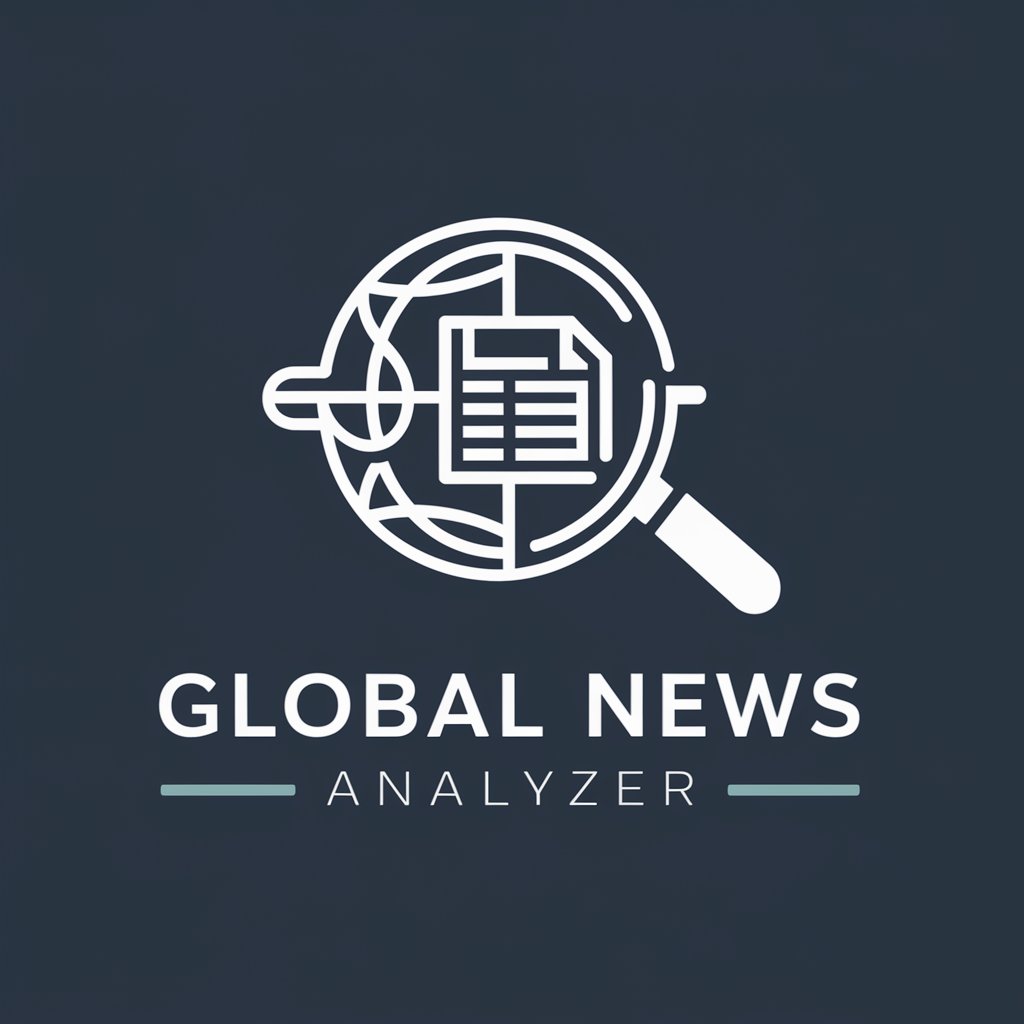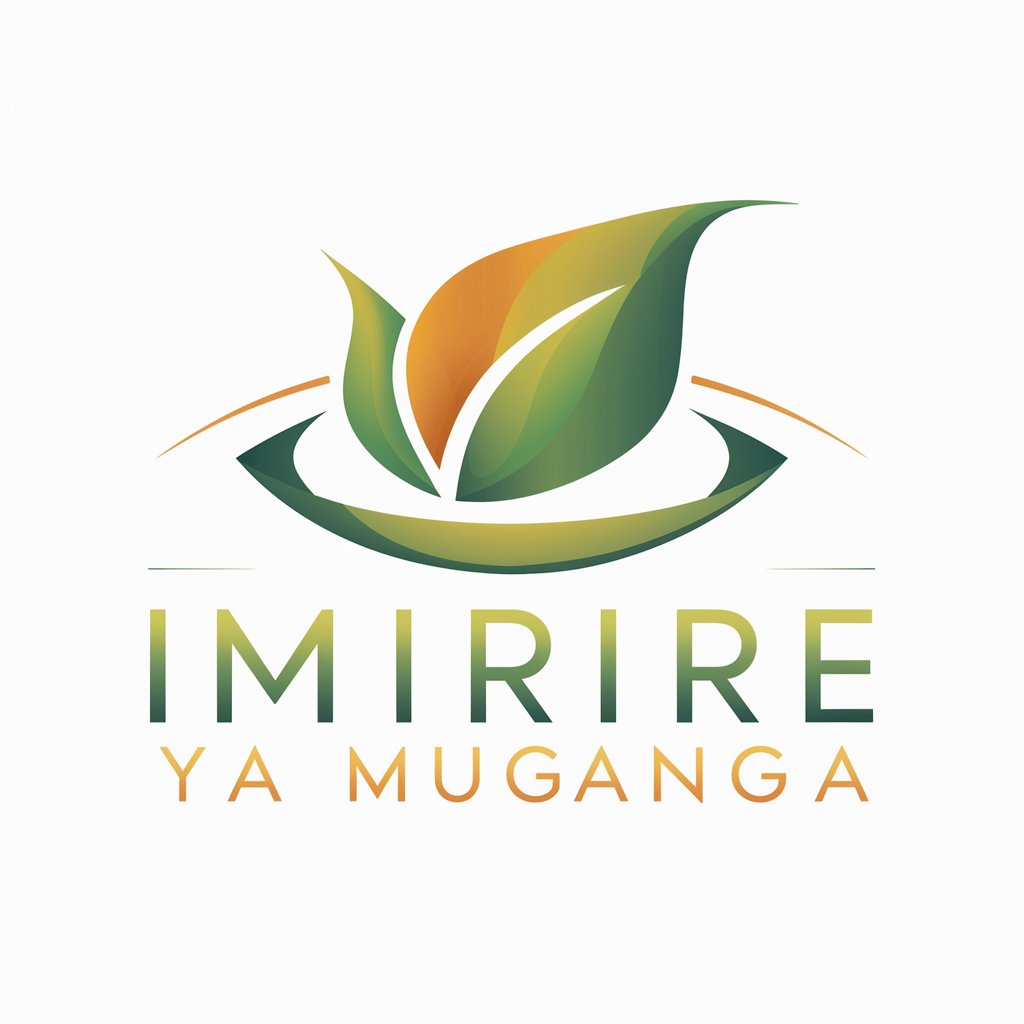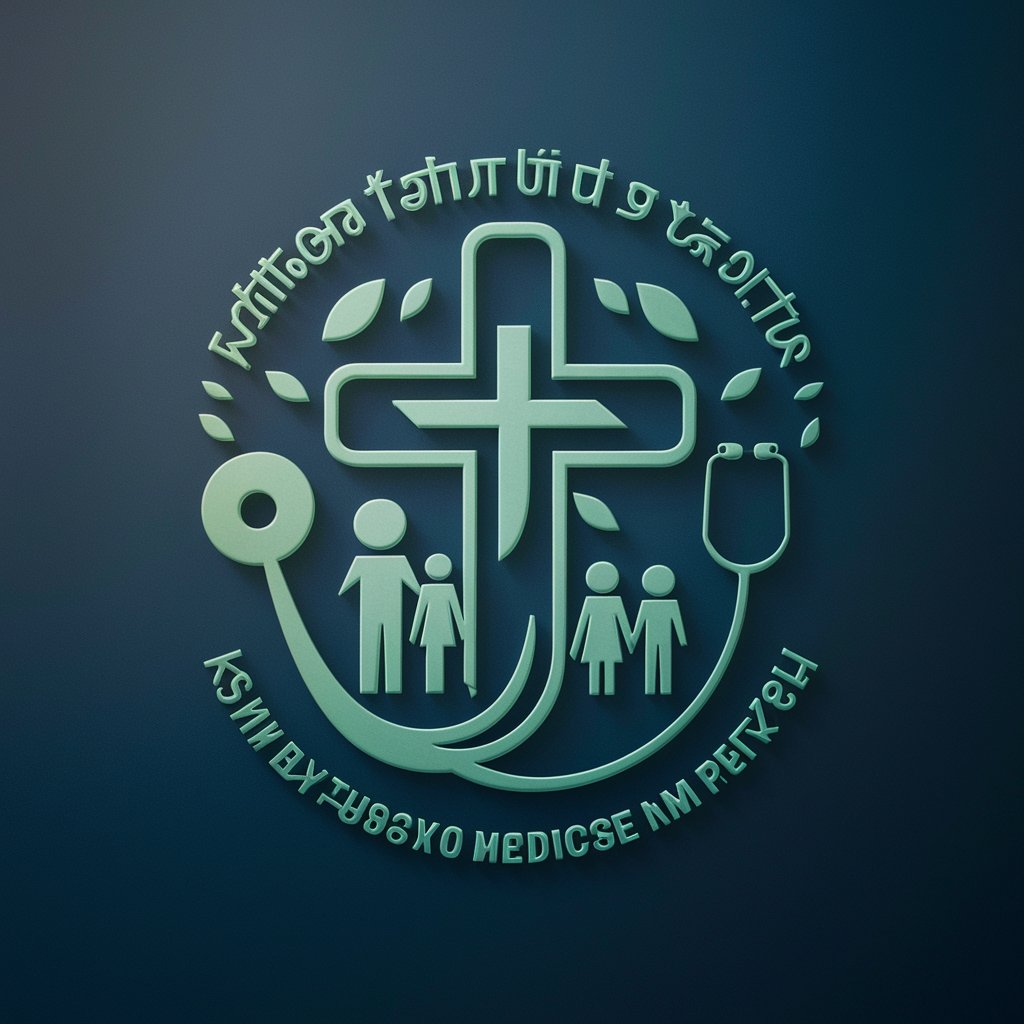Global News Analyzer - Global News Analysis

Welcome to Global News Analyzer, your source for in-depth news analysis.
Unveil the truth with AI-powered news analysis.
Compare the coverage of a recent global event by Associated Press (AP) and Reuters.
Analyze how Agence France-Presse (AFP) and Xinhua report on international economic developments.
Evaluate the depth of reporting on climate change by Bloomberg News and Deutsche Presse-Agentur (dpa).
Identify and discuss any biases in the coverage of geopolitical conflicts by TASS and Anadolu Agency.
Get Embed Code
Introduction to Global News Analyzer
Global News Analyzer is a specialized tool designed for the comprehensive analysis and comparison of reporting by major international news agencies. It focuses on identifying similarities and differences in the portrayal of global events, reporting depth, and thematic focus across various platforms such as Associated Press (AP), Reuters, Agence France-Presse (AFP), Xinhua, Bloomberg News, Deutsche Presse-Agentur (dpa), TASS, Anadolu Agency, Kyodo News, Al Jazeera, France 24, and CGTN. A significant aspect of its functionality includes the use of resources like FactCheck.org to identify misinformation within the reports, allowing for a critical evaluation of journalistic standards and ethics. For example, in the context of a major political election, Global News Analyzer could dissect the coverage across these agencies to reveal biases, inaccuracies, or common threads in how the event is reported, providing users with a nuanced understanding of global media narratives. Powered by ChatGPT-4o。

Main Functions of Global News Analyzer
Comparative Analysis
Example
Comparing the coverage of the U.N. Climate Change Conference across different news agencies.
Scenario
A user can see how the emphasis on specific aspects of the conference, like commitments from various countries or controversies, differs among agencies, highlighting the narrative priorities or geopolitical biases.
Misinformation Identification
Example
Using FactCheck.org to analyze claims made in the context of the COVID-19 pandemic.
Scenario
This function allows users to see how different agencies report on vaccine efficacy or government responses, identifying any spread of misinformation or unwarranted claims, thus ensuring a well-informed public discourse.
Depth and Quality Evaluation
Example
Evaluating the thoroughness of investigative reports on global financial crises.
Scenario
Analysts can assess which agencies provide more in-depth analysis, uncovering underlying causes and potential impacts, as opposed to those offering superficial coverage.
Ethical and Bias Assessment
Example
Reviewing reports on political protests to determine balance and impartiality.
Scenario
This enables users to discern which agencies may be presenting events in a biased manner, thereby affecting public perception and opinion.
Ideal Users of Global News Analyzer Services
Investigative Journalists
Professionals seeking to uncover the truth behind global events, requiring a tool that helps identify biases and misinformation across different media outlets to ensure their reporting is accurate and comprehensive.
Academics and Researchers
Individuals in academia or research focusing on media studies, journalism, or international relations who require in-depth analysis of news reporting patterns, thematic emphasis, and journalistic integrity to support their studies or research.
Policy Makers and Political Analysts
Those in the realm of policy making or political analysis who need to understand the media landscape to better gauge public opinion, media biases, and the quality of information being disseminated, which could influence policy decisions and strategies.
Media Literacy Educators
Educators aiming to teach critical media consumption skills, using the tool to show real-world examples of how different news sources report the same event, thus highlighting the need for critical thinking and source evaluation.

How to Use Global News Analyzer
Start Your Trial
Begin by visiting yeschat.ai to access a free trial of Global News Analyzer without the need for login or a ChatGPT Plus subscription.
Select News Sources
Choose from a wide range of international news agencies you wish to analyze, including AP, Reuters, AFP, and others.
Set Analysis Criteria
Define the criteria for your news analysis, such as date range, specific events, or themes of interest.
Run Analysis
Execute the analysis to compare how different agencies report on the same event, focusing on angles, depth, and accuracy.
Review Results
Examine the compiled results, including comparisons, commonalities, differences, and FactCheck.org accuracy assessments.
Try other advanced and practical GPTs
Trade Titan
Empowering Investments with AI

Oscar Wilde Reimagined Innovator
Reviving Wilde's Genius with AI

" Imirire ya Muganga "
Tailored Nutritional Advice at Your Fingertips

Persona Generator
Craft detailed personas with AI

Pixel Artisan
Craft Your Pixels, Power Your Creativity

GoogIe Ads Agency by UAWC
AI-Powered Google Ads Optimization

Board of Heroes
Empowering decisions with historical wisdom.

FreeRTOS Expert
Empowering real-time solutions with AI-driven insights

Viral Hooks GPT
Crafting Viral Content with AI

ArquiSoluciones
Empowering sustainable architectural innovation with AI.

"परिवार के डाक्टर"
Empowering Your Health with AI

Master Berbiguier the Demonologist
Unveiling the past, one spirit at a time.

Frequently Asked Questions about Global News Analyzer
What is Global News Analyzer?
Global News Analyzer is a tool designed for in-depth analysis and comparison of global news reporting by major international agencies, focusing on their narrative, coverage depth, and accuracy.
Can Global News Analyzer detect misinformation?
Yes, it uses FactCheck.org among other resources to identify misinformation in news reports, thereby assessing the journalistic standards and ethics of the agencies.
How can Global News Analyzer benefit researchers?
Researchers can utilize it to study media bias, report accuracy, and the diversity of journalistic perspectives on international events, enriching their understanding of global media landscapes.
Is there a cost to use Global News Analyzer?
Global News Analyzer offers a free trial without the need for a login or ChatGPT Plus subscription, making it accessible for initial evaluations.
How does Global News Analyzer help journalists?
Journalists can use it to compare their reporting with that of other news organizations, identify gaps or biases in coverage, and improve their investigative reporting skills.
